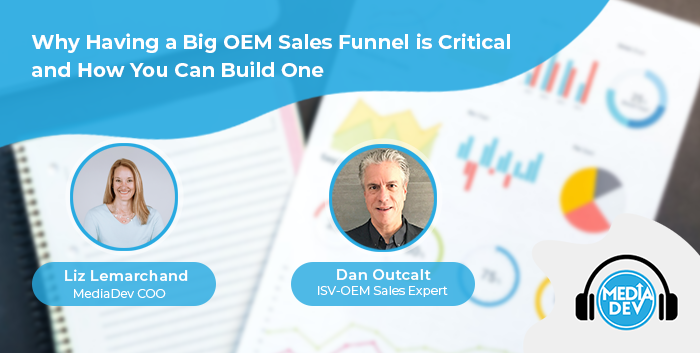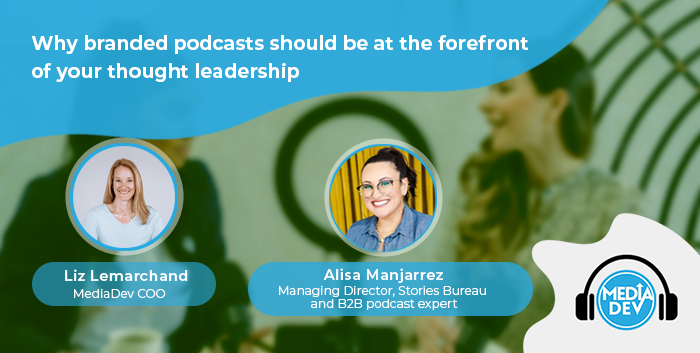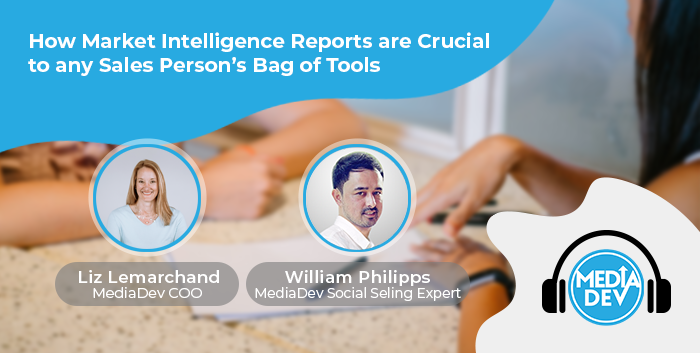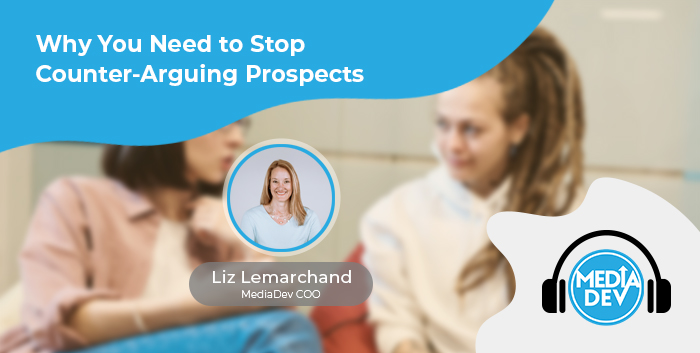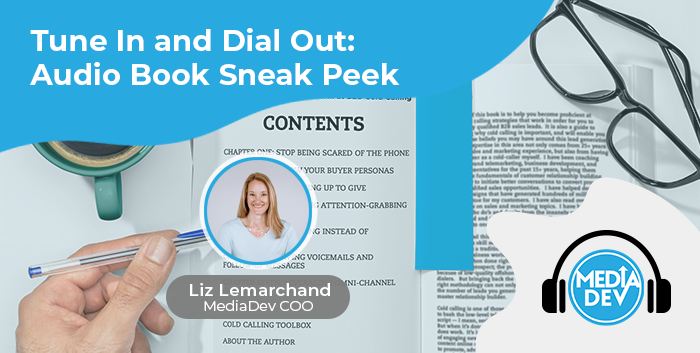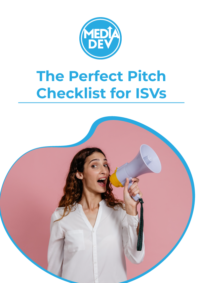Liz talks to Joseph Indolos, a Lead Generation Guru, about navigating lead generation during the pandemic. Which industries are best for outreach now and which ones to hold off for the time being? He shares insights, tips, and practical advice on how to be a better marketer in this new normal. Listen in!
Listen to the episode on Apple Podcast, Google Podcasts, Spotify, Breaker, Pocket casts, RadioPublic, or Anchor.
SHOW NOTES
Are prospects tired of outreach because of the pandemic? What can we do from a lead generation standpoint to revive people’s interest in engaging in conversations? [01:03]
How has location affected lead generation outreach and what are the trends in the areas you reach out to? [09:07]
What industries are the best ones to reach out to despite the pandemic? Which ones would to avoid? [13:10]
How to close an email pitch while remaining sensitive but not annoying prospects as the pandemic persists? [17:28]
Other tips to companies looking to improve their outreach and generate high-quality leads for their business? [19:18]
If you’ve enjoyed this episode, please subscribe via Apple Podcast | Google Podcasts | Spotify | Anchor to automatically get the next ones!
Thanks for Listening Today!
Share it with someone you believe will also benefit from listening to it. Use the share buttons below! They’ll thank you for it.
TRANSCRIPT
Liz Lemarchand: How is it that innovative software solutions have the ability to change the world yet they don’t sell themselves? How is it that I know my target market but I’m not able to generate enough sales opportunities? How do I even get started to create visibility for my brand when I’m not an expert in marketing? That is the question and this podcast will give you the answer. Welcome to SMplified: Software Marketing Made Simple!
Hi everyone, this is Liz for MediaDev and today I am joined by Joseph Indolos who I will refer to as a lead generation guru, hi, Joseph, how are you today?
Joseph Indolos: I’m good Liz, thanks for having me again here.
Liz Lemarchand: Yeah, this is our second podcast that I’m excited to talk to you today about our topic, which is are prospects tired of outreach because of the pandemic? So just giving some more b2b Lead Generation tips for ISVs.
Of course, as the pandemic kind of lingers, so I wanted to kick off our discussion by really addressing this question, are prospects tired of outreach because of the pandemic and what can we do from a lead generation standpoint to revive people’s interest in engaging in conversations. I find that, at least from my perspective, it seems like there are a lot of prospects generally who are nonresponsive. I don’t know if that’s the case for you but I wanted to get your insight on this today.
Joseph Indolos: Absolutely, like you know, it’s a similar experience. And I think you know this is the topic that needs to be addressed more often since there’s no silver bullet to this growing issue and we would need to work together, not just ourselves as the agencies, but also, you know, with our prospects in establishing a harmonious better relationship so we can be able to have an environment that’s despite what’s going on it’s, something to look forward to. As a matter of fact, there was even a prospect that I engaged with recently that responded to me saying, you know, you know what? It’s interesting, but ask me next week. I don’t want to talk about it today. I don’t want to think about it. No need to respond and this is in LinkedIn, right?
So, I reached out to him and you know, apparently, that’s his words. So, it’s interesting, but also at the same time that we needed to experience this kind of behavior in our generation ’cause of the COVID? And some people might not even recognize that they may have what they call pandemic fatigue if you will. So now as you know, as part of our job is to be more engaging, part of the lead generation job description is to also gauge people’s current situation, of course, be nice, kind, practice empathy because it’s like you know treading on eggshells. We’ll never know what our prospects are going through with their life.
Unfortunately, a few might have, you know, lost a family member or some might have recently got infected by the virus and it’s a really traumatizing experience. So, you know right now what I could think of as few solutions is having you know, a creative mindset to formulate different types of content as well as creative engagement experiences and then also with the help of data insights, maybe we can try to connect the dots and predict what’s going on with the person’s life.
From a lead generation standpoint, prioritize the companies and the contacts with the right approach if you will. So, as I’ve mentioned, so for the content piece, I think if done well and disseminated to proper channels, this will help tell the story of your solutions and/or products much faster with a positive impact, and in my opinion, content becoming more relevant than ever, it will because it will really help a couple of things.
Number one is, from the prospect’s perspective, the approach of content nurturing for prospects is for them, it’s less intrusive. It’s easy to digest. A way of selling a product or a solution, so, for example, instead of she’d be giving like a whole spiel of one hour if you have an infographic that talks about how they can solve their current challenges, that could only take them a minute or two to digest. That would save a lot of time from a prospect’s perspective and still from prospect’s point of view, a meaningful and engaging content will positively help prospects kind of divert their attention away from their day-to-day life challenges.
So, if we think about it because they may have something going on in their lives and having a positive impact with your content whether it’s YouTube 60 minute, I’m sorry 60 seconds link, talks about some great stuff about solving challenges. It can help divert their attention if you will.
And lastly, from the seller’s perspective I think this is the subtle low-key way of showing your product or service and like I said earlier, instead of a 30-minute presentation, maybe a 60 seconds YouTube video talks about your service would really help trim down your selling cycle because it can help digest information and it’s the content experience to be different as opposed to the traditional way of doing things. And also to top it off like for data I mentioned data insights earlier, I think having data Insights as the tool to leverage in understanding companies, our prospects that are associated to these organizations. So, insights like maybe, lack of a better example, like post COVID strategies of companies. Were there layoffs that happened during the course of the pandemic and other publicly available information will help us understand what the organization as people are going through so combining that data-driven approach towards marketing sort selling lead generation will help you prioritize the right set of accounts and really from that angle you can practice empathy, definitely help create a different experience altogether from both ends of the spectrum.
Liz Lemarchand: Excellent, so it’s interesting the points you brought up. I mean, I do feel though that the pandemic has hit people differently depending on where they’re located. I mean, I know for myself in France, things now have really opened up and people just want to forget about the pandemic. You know, really put it behind them and get on with you know, quote, unquote, normal life. But I know that’s not the case everywhere. So how do you think location has affected lead generation outreach for you? And what are some trends that you’re seeing now in some of the areas that you reach out to?
Joseph Indolos: Absolutely, that’s a very good point, and it varies depending on country to country. So, in terms of the domestic setup here in the Philippines, most of the multinational firms follow strict protocols, work from home environment setup because we’re relying and this is from our point of view, we’re relying with regard to vaccines to other countries, so while there’s no shortage of talent, there’s also a new breed of challenges that are going on because there are gaps of errors of improvement. So, for example, training-wise, we all know that’s it’s more effective if it’s classroom type, in person, personal relay of information and it’s more convenient and you know you can easily gauge the progress of the team members, but now everything is done via Zoom. And you know, they now have what we call this Zoom fatigue where people are getting tired of sitting in front of the computer all day long so.
Liz Lemarchand: Yeah, completely.
Joseph Indolos: And even my kid, now, she’s excited to go back to school, it’s because it’s been almost two years now. So, there are new or I’d say modern challenges that need to be addressed in this type of setup. And when it comes to lead generation, there are also various challenges depending on country to country.
So, like a couple of months ago, we found that Southeast Asia, including Singapore became a tougher market because of the localized lockdown. So, these are campaigns that I’ve seen that we’ve ran. And on the flip side, we now see US starts opening up so there were better conversions in the US, but during the get go of this pandemic, US is like, you know in terms of conversion, pretty bad. And there there’s this another thing like a phenomenon called the great resignation, which is forcing organizations to rethink their workforce strategies. So, I anticipate there’ll be a lot of moving parts to observe, moving parts as this unravels so you know there should be modern solutions that should be concocted so we can be able to address these types of challenges as we go along.
Liz Lemarchand: So, what industries have you found are the best ones to reach out to you despite the pandemic and which ones would you avoid?
Joseph Indolos: Yeah, now that’s also, good question. At first logistics and supply chain industries, the main targets when pandemic started but month after month, we’ve seen that logistics and the similar industries became overly saturated because everyone is going after the same space and to the point that for telemarketing, no one’s answering their phones anymore because you know they’re hearing same old pitches from different companies, so I think from a different angle, what I would do in terms of approaching different industries is we can try to understand different components that build a remote working industry. So, for example, it could be anywhere from devices such as laptops, phones, software for remote working like Zoom, Google Meet, Teams etc. Also, we’ve seen a spike of security and monitoring solutions, so the teams can work efficiently and also can do unified collaboration. So, any type of software that provides a security intelligence also like collaboration and things like that, that really is a thriving industry nowadays. Also the food and drink, the beverages delivery apps, obviously over the year everyone doesn’t wanna go out and the behavior is that since people experience the convenience of the delivery apps, they don’t really wanna go back now to doing the brick and mortar type of dining type of or restaurants or even like the groceries. So from that perspective, those types of softwares or apps might be a good industry to target, because obviously as they grow their business, they would have their challenges as well and will need to upgrade their systems.
And then for healthcare like not just the traditional healthcare but also you know the ones that use modern techniques like do the ones that use data for healthcare the wearable devices that could monitor different types of elements and also virtual reality to make health care more accessible and remote. So those things are, I think, a good industry to target.
Finance and you know, like banking and contactless payments it could be a good industry and of course education like remote learning technology would be something that would be a good target, so to speak.
Liz Lemarchand: So I keep being pitched by people when they close their messages, you know they do that with a stay safe. And I have to admit that I’m really tired of that. What do you think about this? How can someone close an email and remain sensitive but not annoy prospects as this pandemic persists.
Joseph Indolos: Yeah, and then you know that’s also something that I’ve felt personally. In most cases, it reminds some of the events that happened during the pandemic to some folks that we reach out to so it could provide a negative connotation if you will. So, personally I tried changing back to some of the cliche messages like “Many thanks”, “best regards” and things like that, but also maybe we can try to be more creative like “I’m at your disposal” or “thanks, I’m a call away if you need anything” so we let them genuinely feel that we’re here to support them whatever they’re going through and for a business standpoint or like a lead generation standpoint, we’re here to support whatever we can, so I mean, that’s how I approach it nowadays being able to help other people.
Liz Lemarchand: So what other tips would you give to companies who are looking to improve their outreach and generate high quality leads for their businesses at this point in time?
Joseph Indolos: Yep, I think being personal, opening up your conversation with “how may I help you with your challenges will be a game changer as opposed to just selling features, products, services because like I said earlier, you know there will be some things that we don’t know that’s happening so, if we come from the perspective that we’re here to help someone that would help you set apart from the rest and end of the day, it takes two to play a game, so you know we need really to work together towards battling this pandemic and move forward together with a positive mindset so we end up counting our blessings instead of dwelling on the past so, that’s why what I would say is, be personal, be helpful, be kind, and practice empathy.
Liz Lemarchand: I love that. Thank you so much Joseph. It’s been really a pleasure talking with you today.
Joseph Indolos: Thank you so much, Liz. I appreciate your time, as well.
Liz Lemarchand: You just listen to SMplified brought to you by MediaDev. If you have software marketing questions or need help marketing your software solution, reach out to us at contact@mediadev.com and check out other amazing assets for you on our resource library at mediadev.com.



